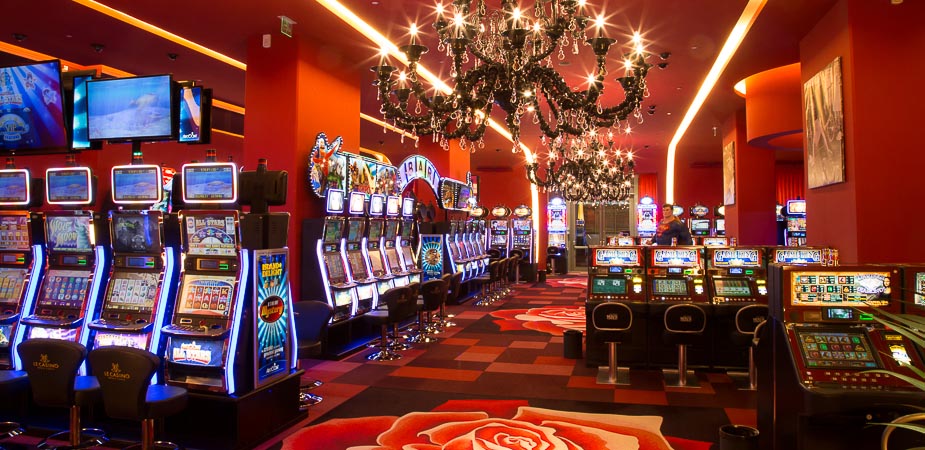
Gambling in casinos has long been a topic of interest and debate, attracting millions of players around the world. With a mix of luck, skill, and the thrill of risk, casino games offer an exciting escape from everyday life. However, as entertainment becomes ever more accessible, it calls for a more thorough examination of the ethical implications surrounding these games.
At the heart of the discussion lies the issue of whether casinos promote safe gambling or exploit vulnerable individuals. The appeal of potential winnings versus the truth of losses can create a challenging situation, and understanding this balance is essential for both players and operators. As we delve into the ethics of casino gaming, we will explore the responsibilities of casinos, the impact on society, and the steps that can be taken to foster a better gaming environment.
The Impact of Casino Gaming on Society
Casino gaming has a significant influence on societal dynamics, affecting not only the economy but also social behaviors and local frameworks. The revenue generated from casinos can lead to job creation and boost regional economies, as they provide various employment opportunities in different sectors including food and beverage, leisure activities, and shopping. However, while the financial benefits can be significant, communities often struggle with the potential negative impacts that arise from higher gambling activity.
Additionally, the presence of casinos can lead to an increase in gambling addiction, presenting serious challenges for individuals and families. The excitement of casino games can quickly evolve into a habitual habit, affecting connections with others and leading to financial instability. Many individuals may find it difficult with the loss of control over their gambling behaviors, resulting in a need for community support services and interventions to address this growing issue. The social cost of addiction can ripple through families and neighborhoods, creating an urgent need for responsible gaming initiatives.
In addition to the economic and social ramifications, casino gaming often reflects cultural attitudes towards uncertainty and entertainment. It can encourage a sense of joy and leisure, attracting visitors and boosting local travel. However, this allure may also mask the broader implications of gambling as a method of entertainment, provoking ethical questions about its promotion and availability. As communities weigh the benefits and disadvantages of casino gaming, the need for sensible approaches and oversight becomes increasingly critical in ensuring that the beneficial elements are maximized while minimizing the negative effects.
Ethical Issues in Gambling Practices
The ethics of gambling operations often center around the potential for dependency and its effects on individuals and families. Gambling can lead to significant monetary distress, impacting not only the betters but also their loved ones. As individuals become entrapped in the allure of winning, many lose track of their budget, which can result in catastrophic outcomes such as bankruptcy. This poses ethical questions about the responsibility of casinos in promoting safe gaming practices and offering support for those who may be struggling with betting addiction.
Another critical concern is the promotion of gambling to vulnerable groups. Gambling establishments often target low-income people or communities with the promise of quick rewards, which can continue patterns of poverty and despair. In this context, the ethics of advertising strategies used by gambling establishments come under scrutiny, as they may take advantage of the desperation of individuals seeking an escape from economic troubles. This manipulation raises ethical questions about the integrity of the gambling industry and its responsibility to safeguard its most vulnerable patrons.
Additionally, the effect of casino operations on the community as a whole cannot be overlooked. While some argue that casinos create employment and boost local economies, others point to the social costs associated with problem gambling, increased crime rates, and a strain on public resources. Balancing economic benefits with the potential for community issues presents a challenging moral dilemma for lawmakers and gambling operators alike. The difficulty lies in finding a ethical approach that prioritizes the welfare of individuals and communities while still allowing for the pleasure of casino activities.
Regulatory System and Responsibilities
The oversight system surrounding gaming activities is created to ensure fairness, honesty, and gambler security. bắn cá i9bet Multiple government entities and casino commissions create and enforce regulations that dictate how gambling activities operate, the criteria for game creation, and the processes for handling rewards. These regulations vary by jurisdiction but usually involve licensing requirements for operators and strict measures to prevent deception and dishonesty.
In also to regulatory bodies, casino establishments bear major duty in maintaining principled standards within their facilities. They must implement ethical gambling practices that support player protection and consciousness, including offering self-exclusion options and sharing information about the risks associated with betting. Establishments are also obligated for training employees to spot signs of difficult gambling and be aware of the proper actions to support customers in need.
Additionally, clarity in casino operations is essential for earning and maintaining public confidence. Operators should offer clear information about the chances of operations, advertising offers, and any associated dangers. i9bet8.us By promoting an environment of transparency and accountability, gambling establishments can help lessen the possible negative impact of gaming while boosting the complete gambling experience for all players.
